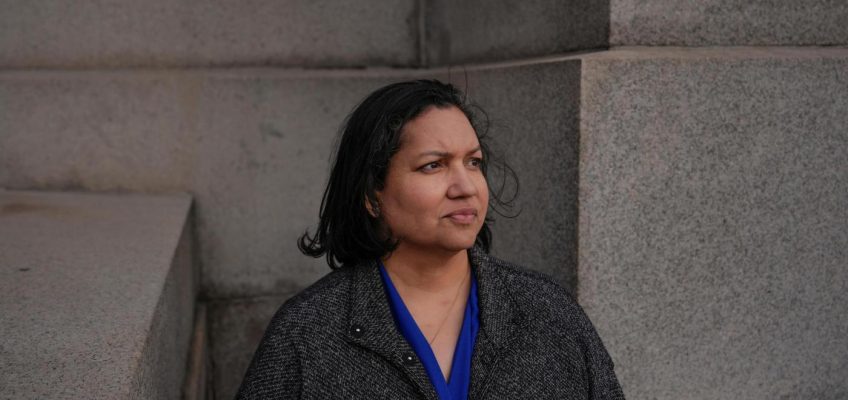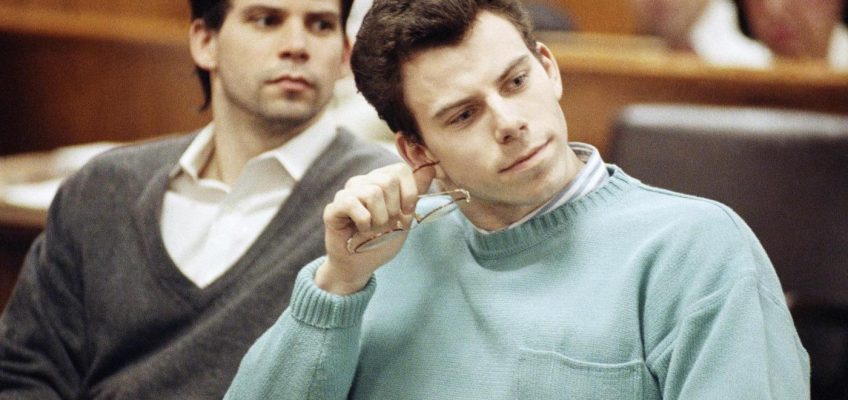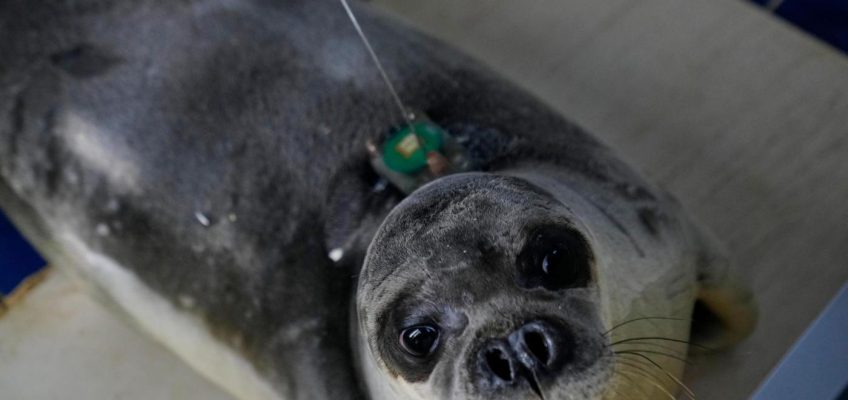By CLAIRE SAVAGE
NEW YORK (AP) — To billionaire Elon Musk and his cost-cutting team at the Department of Government Efficiency, Karen Ortiz may just be one of many faceless bureaucrats. But to some of her colleagues, she is giving a voice to those who feel they can’t speak out.
Related Articles
Supreme Court will take up state bans on conversion therapy for LGBTQ+ children, in a Colorado case
What to know ahead of the talks between the US and Ukraine in Saudi Arabia
Young people who aspired to government service dismayed by Trump ending the federal fellows program
Secretary of State Rubio says purge of USAID programs complete, with 83% of agency’s programs gone
Trump loves the Gilded Age and its tariffs. It was a great time for the rich but not for the many
Ortiz is an administrative judge at the Equal Employment Opportunity Commission — the federal agency in charge of enforcing U.S. workplace anti-discrimination laws that has undergone tumultuous change since President Donald Trump took office. Like millions of other federal employees, Ortiz opened an ominous email on Jan. 28 titled “Fork in the Road” giving them the option to resign from their positions as part of the government’s cost-cutting measures directed by Trump and carried out by DOGE under Musk, an unelected official.
Her alarm grew when her supervisor directed administrative judges in her New York district office to pause all their current LGBTQ+ cases and send them to Washington for further review in order to comply with Trump’s executive order declaring that the government would recognize only two “immutable” sexes — male and female.
Ortiz decried management’s lack of action in response to the directive, which she said was antithetical to the EEOC’s mission, and called upon some 185 colleagues in an email to “resist” complying with “illegal mandates.” But that email was “mysteriously” deleted, she said.
The next day, after yet another frustrating “Fork in the Road” update, Ortiz decided to go big, emailing the EEOC’s acting chair Andrea Lucas directly and copying more than 1,000 colleagues with the subject line, “A Spoon is Better than a Fork.” In it, Ortiz questioned Lucas’s fitness to serve as acting chair, “much less hold a license to practice law.”
“I know I take a great personal risk in sending out this message. But, at the end of the day, my actions align with what the EEOC was charged with doing under the law,” Ortiz wrote. “I will not compromise my ethics and my duty to uphold the law. I will not cower to bullying and intimidation.”
Ortiz is just one person, but her email represents a larger pushback against the Trump administration’s sweeping changes to federal agencies amid an environment of confusion, anger and chaos. It is also Ortiz’s way of taking a stand against the leadership of a civil rights agency that last month moved to dismiss seven of its own cases representing transgender workers, marking a major departure from its prior interpretation of the law.
Right after sending her mass email, Ortiz said she received a few supportive responses from colleagues — and one calling her unprofessional. Within an hour, though, the message disappeared and she lost her ability to send any further emails.
But it still made it onto the internet. The email was recirculated on Bluesky and it received more than 10,000 “upvotes” on Reddit after someone posted it with the comment, “Wow I wish I had that courage.”
“AN AMERICAN HERO,” one Reddit user deemed Ortiz, a sentiment that was seconded by more than 2,000 upvoters. “Who is this freedom fighter bringing on the fire?” wrote another.
The EEOC did not feel the same way. The agency revoked her email privileges for about a week and issued her a written reprimand for “discourteous conduct.”
Contacted by The AP, a spokesperson for the EEOC said: “We will refrain from commenting on internal communications and personnel matters. However, we would note that the agency has a long-standing policy prohibiting unauthorized all-employee emails, and all employees were reminded of that policy recently.”
A month later, Ortiz has no regrets.
“It was not really planned out, it was just from the heart,” the 53-year-old told The Associated Press in an interview, adding that partisan politics have nothing to do with her objections and that the public deserves the EEOC’s protection, including transgender workers. “This is how I feel and I’m not pulling any punches. And I will stand by what I wrote every day of the week, all day on Sunday.”
Several veteran budget hawks are giving DOGE mixed reviews, including some who say Musk’s early targets demonstrate success and show more potential than previous efforts to downsize the government. A January poll from The Associated Press-NORC Center for Public Affairs Research shows that about 3 in 10 U.S. adults strongly or somewhat approve of Trump’s creation of DOGE while about 4 in 10 Americans oppose eliminating a large number of federal jobs.
Ortiz said she never intended for her email to go beyond the EEOC, describing it as a “love letter” to her colleagues. But, she added, “I hope that it lights a fire under people.”
Ortiz said she has received “a ton” of support privately in the month since sending her email, including a thank-you letter from a California retiree telling her to “keep the faith.” Open support among her EEOC colleagues beyond Reddit and Bluesky, however, has proven more elusive.
“I think people are just really scared,” she said.
William Resh, a University of Southern California Sol Price School of Public Policy professor who studies how administrative structure and political environments affect civil servants, weighed in on why federal workers may choose to say nothing even if they feel their mission is being undermined.
“We can talk pie in the sky, mission orientation and all these other things. But at the end of the day, people have a paycheck to bring home, and food to put on a table and a rent to pay,” Resh said.
The more immediate danger, he said, is the threat to one’s livelihood, or inviting a manager’s ire.
“And so then that’s where you get this kind of muted response on behalf of federal employees, that you don’t see a lot of people speaking out within these positions because they don’t want to lose their job,” Resh said. “Who would?”
Richard LeClear, a U.S. Air Force veteran and EEOC staffer who is retiring early at 64 to avoid serving under the Trump administration, said Ortiz’s email was “spot on,” but added that other colleagues who agreed with her may fear speaking out themselves.
“Retaliation is a very real thing,” LeClear said.
Ortiz, who has been a federal employee for 14 years and at the EEOC for six, said she isn’t naive about the potential fallout. She has hired attorneys, and maintains that her actions are protected whistleblower activity. As of Monday morning, she still has a job but she is not a lifetime appointee and is aware that her health care, pension and source of income could all be at risk.
Ortiz is nonetheless steadfast: “If they fire me, I’ll find another avenue to do this kind of work, and I’ll be okay. They will have to physically march me out of the office.”
Many of Ortiz’s colleagues have children to support and protect, which puts them in a more difficult position than her to speak out, Ortiz acknowledged. She said her legal education and American citizenship also put her in a position to be able to make change.
Her parents, who came to the U.S. mainland from Puerto Rico in the 1950s with limited English skills, ingrained in her the value of standing up for others. Their firsthand experience with the Civil Rights Movement, and her own experience growing up in mostly white spaces in Garden City on Long Island, primed Ortiz to defend herself and others.
“It’s in my DNA,” she said. “I will use every shred of privilege that I have to lean into this.”
Ortiz received her undergraduate degree at Columbia University, and her law degree at Fordham University. She knew she wanted to become a judge ever since her high school mock trial as a Supreme Court justice.
Civil rights has been a throughline in her career, and Ortiz said she was “super excited” when she landed her job at the EEOC.
“This is how I wanted to finish up my career,” she said. “We’ll see if that happens.”
The Associated Press’ women in the workforce and state government coverage receives financial support from Pivotal Ventures. AP is solely responsible for all content. Find AP’s standards for working with philanthropies, a list of supporters and funded coverage areas at AP.org.




